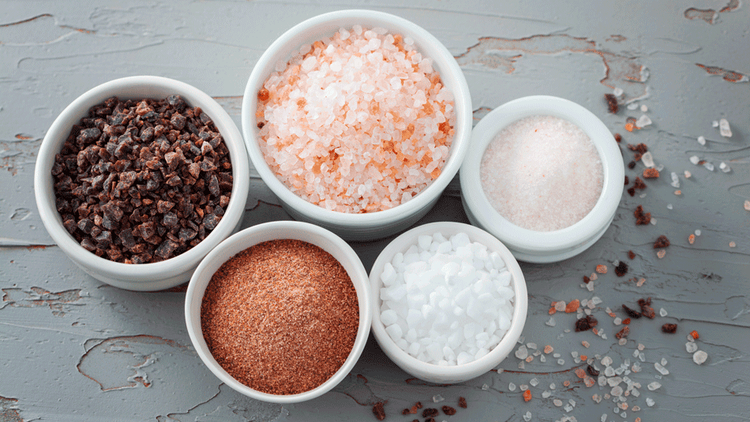This is an automatically translated article.
The article was written by BS. Dr. Ho Thu Mai, in charge of Nutrition - Vinmec Times City HospitalNoncommunicable diseases are a major cause of increased morbidity and mortality globally. The cost of interventions to reduce the incidence and severity of NCDs is quite high. Salt consumption is associated with an increase in non-communicable diseases (including hypertension, cardiovascular disease and stroke). Reducing salt consumption can reduce blood pressure and the risks associated with NCDs.
Recent research results show that people all over the world are consuming more salt than their body needs. In many cases, salt consumption is many times higher than the World Health Organization's recommendation for salt consumption for adults of 2 grams of sodium per day (equivalent to 5 grams of salt per day).
>>> Salt: How much to eat each day is enough?
Reducing dietary salt contributes to a significant reduction in systolic blood pressure in both adults and children. The study results also showed that those who consumed salt <5 grams/day had a greater reduction in blood pressure than those who had reduced salt consumption but still over 5 grams/day. Reducing dietary salt intake did not significantly affect blood lipids , catecholamines or kidney function .
Salt is an extremely necessary substance for the body, but eating too much salt is a major risk factor for high blood pressure, stroke, heart attack, in addition to increasing the risk of stomach cancer. thickening , kidney failure , osteoporosis and other health problems .
According to the World Health Organization, every year 4.1 million people die worldwide due to excess salt intake. Currently, in the world, the consumption of 1 adult is nearly 10g of salt per day, nearly twice as high as recommended by the World Health Organization. If we follow the recommendations correctly, every year we can save 2.5 million people from dying.

Sử dụng muối ăn hợp lý giúp người dùng có sức khỏe tốt
In Vietnam, eating a lot of salt is an important cause contributing to the increased incidence of hypertension and death from cardiovascular diseases. Data show that in our country, 1 in 5 adults has hypertension, 1 in 3 deaths is due to cardiovascular diseases.
Currently, the majority of Vietnamese people are eating too much salt. On average, an adult consumes up to 9.4 g of salt/day, almost double the WHO recommendation. Meanwhile, people's understanding of the harmful effects of excess salt intake and salt reduction practices in the community is still limited. Therefore, information, education and communication play an important role in raising people's awareness to reduce salt intake, prevent diseases, and improve health.
Based on scientific evidence on salt consumption with hypertension and cardiovascular disease, the World Health Organization has made recommendations on salt consumption for adults and children:
Reduce consumption Salt helps reduce blood pressure and the risk of heart disease, stroke, and coronary heart disease. Salt intake should be reduced to less than 5 grams/day (less than 2 grams of sodium/day) Reducing salt consumption helps to reduce blood pressure in children. Daily salt intake in children is adjusted downward based on the child's energy needs compared with that of an adult.
Planning to build a healthy diet, reducing the amount of salt consumed in the daily diet helps us to reverse the risk of cardiovascular diseases. In addition, in order to actively prevent and control the disease, each individual should perform a periodical health examination at least once a year to understand the body's condition. International General Hospital provides customers with general health checkup packages from basic to special, from the test results, customers will receive advice on scientific nutrition to maintain Good health from expert doctors at the hospital.
Please dial HOTLINE for more information or register for an appointment HERE. Download MyVinmec app to make appointments faster and to manage your bookings easily.













